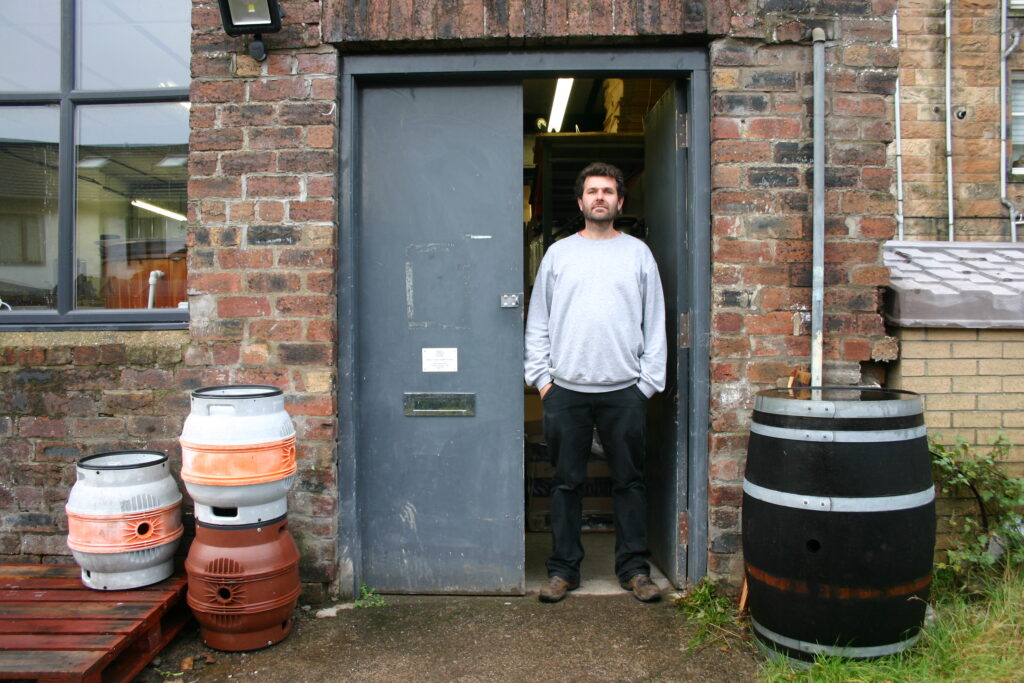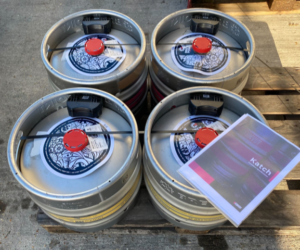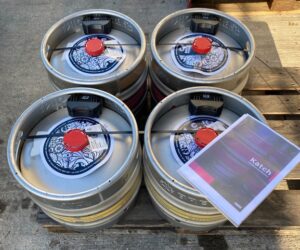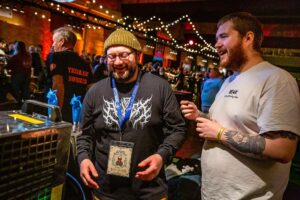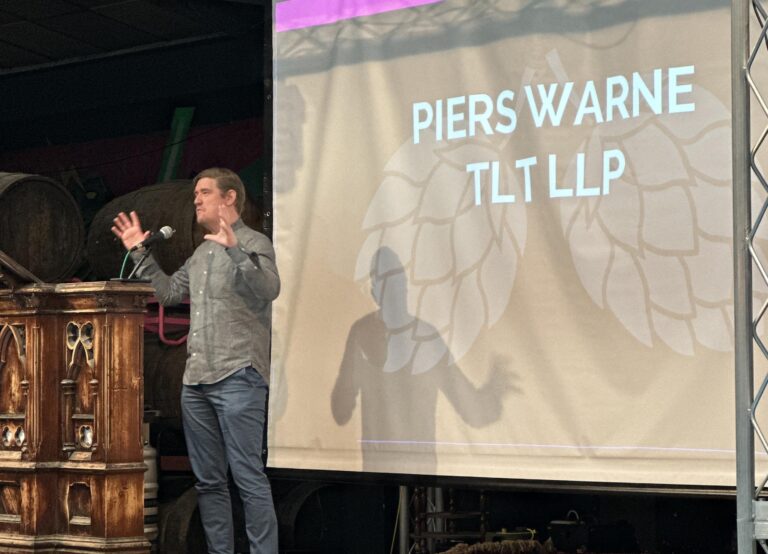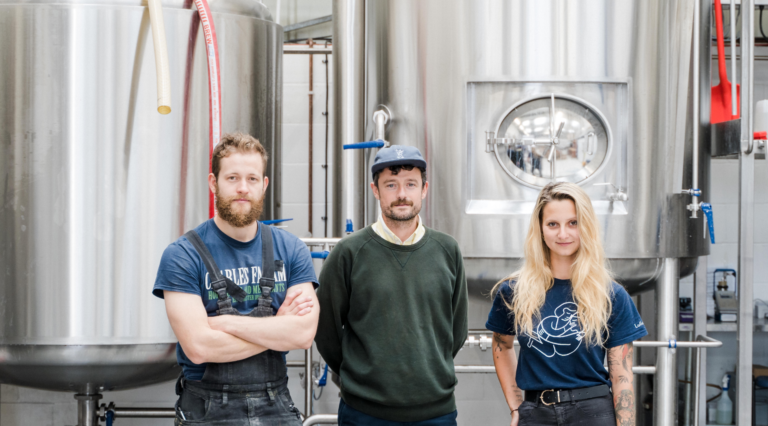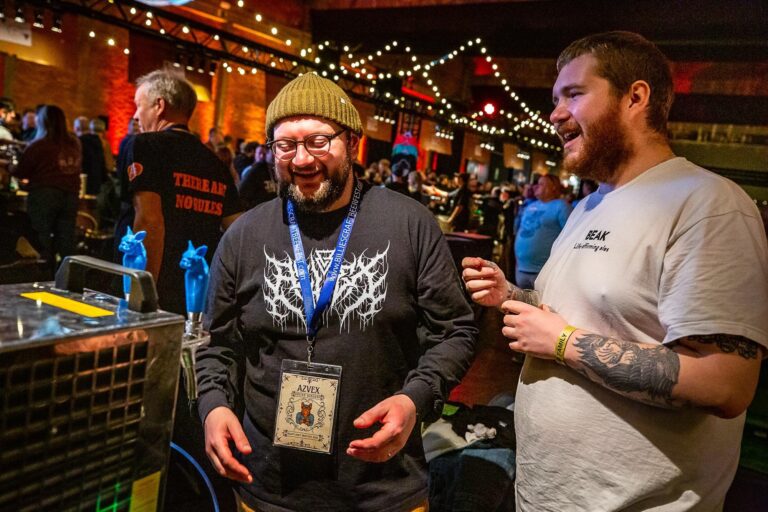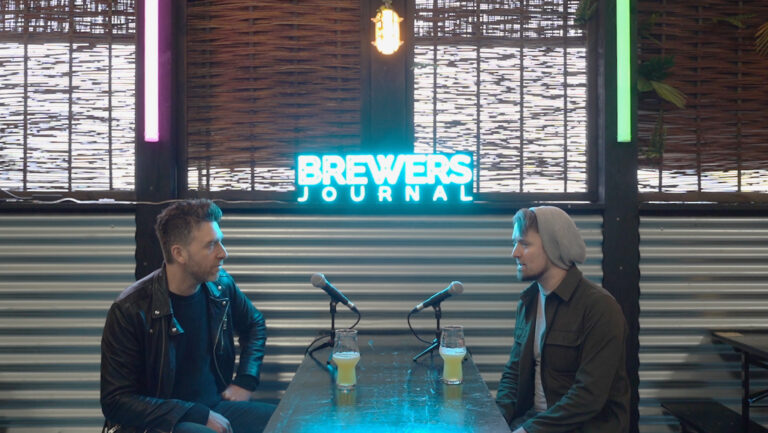We all come into the beer industry from different angles, with our own perspectives and from diverse origins. Phil Sisson, the founder of Simple Things Fermentations, in Glasgow, Scotland, is no different. Leaving a career in music studio management within London, to move north of the border for a new life, he would soon find his true calling in brewing.
Some things are just meant to be.
For many years, the Strongroom Bar & Kitchen in Shoreditch, London has been something of a destination for great beer in the capital.
Not just to a place to drink it, but often to enjoy this beloved beverage in the company of those that brew it, sell it and market it.
Home to countless meet the brewer events, beer festivals and the like, Strongroom was initially founded as somewhere for clients of the studios that operate above the bar to drink, mingle and be merry.
And for some time, the manager of Strongroom Studio was Phil Sisson.
But following a successful stint in London, Sisson would end up trading the capital and its music scene for another creative calling.
And that would mean starting his own brewery in Glasgow in the form of Simple Things Fermentations, an outfit founded on the desire to focus on British and European brewing heritage and culture, with a modern and innovative approach.
But let’s first take a step back, and when Rob Lovatt talks, you listen.
The production director at the venerable Thornbridge Brewery in Bakewell is one of the UK’s finest brewers.
He was frequently part of the judging panel at the Great British Home Brew Challenge.
In conjunction with Waitrose and Brew UK, the competition offered the winner the chance to brew their beer at Thornbridge before it was rolled out to some 70 Waitrose stores across the UK.
And in 2016, the triumphant beer was Raindrops on Roses, a 5.3% Belgian Wit style beer, brewed with rose petals.
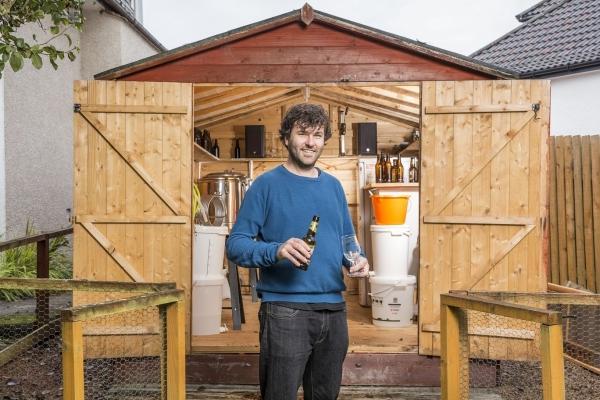
Commenting, Lovatt said: “The beer was undoubtedly well made with the roses working in a beautiful harmony with the camomile and coriander.
“A worthy winner from a great selection of beers that were submitted to the challenge which goes from strength to strength.”
The victorious homebrewer in the 2016 competition was Phil Sisson.
Having recently moved to Glasgow from London, he wasn’t 100% certain what his next career move would be – but successes such as those must have clearly focused the mind.
“For us, Glasgow was more or less a pin in a map type thing. Although I grew up in the northwest of England, my folks are in Cumbria, and my wife grew up in Fife in eastern Scotland,” he explains. “So we were effectively within striking distance of both of our parents. That, and we were ready to leave London after 20 years.”
Sisson wasn’t keen on giving up much of London’s qualities though, so Glasgow would become their destination. However a career in beer wasn’t front and centre of his thoughts upon leaving the big smoke.
“I think we’ve moved to Glasgow before I’d settled on brewing, I’ve been home brewing for quite a while and enjoying it, and then we moved up to Scotland, and I did more of it,” he says. “So I applied for a Masters at Herriot Watt, was accepted and at that point, the die was cast.”
Sisson says his time at the world-famous institution was a fantastic experience, and one he’s happy to admit was much harder work than he had initially expected, especially as he was combining a young family and a commute between Glasgow and Edinburgh.
I applied for a Masters at Herriot Watt, was accepted and at that point, the die was cast,” Phil Sisson, Simple Things Fermentations
“That knocked a couple of hours off of the day. And in addition to the huge amount of work to be done, I was part of their natural selection team, an annual project where you develop and bring to market a brand new beer,” he recalls. “It’s a fantastic initiative in conjunction with Stewart brewing which involves formulating, brewing, packaging and hopefully selling a new beer.”
Sisson adds: “It was a super experience that I gained an awful lot from, not just in terms of brewing but the business side, too. The Stewart Brewing team were really good mentors and very generous with their time.”

The aspiring brewery owner also relished the diverse nature of the course setup, featuring students from South America, Australia, India, Africa and beyond.
“I didn’t expect it to be such a big factor, but having the chance to learn from people from so many different backgrounds, to benefit from those perspectives, was really valuable.”
Following the conclusion of his studies, Sisson would go on to work at Harviestoun Brewery in Alva before branching out on his own.
He had a plan, and he knew how he wanted to carry it out – but accounting for a global pandemic was always going to be a tricky hurdle to navigate.
“The business plan kind of consistent was was like a sort of two pronged affair. So it was doing bottle-conditioned releases of styles that were a little bit off the beaten track,” he tells us. “And traditional styles for cask and keg dispense.”
For Sisson, his passions don’t lie in brewing hop-forward hazy pales and IPAs despite enjoying drinking them.
“My feeling is that those beers are already very well taken care of by the brewing community, so we don’t need another brewery popping up making them,” he explains.
“My penny drop moment came reading ‘Radical Brewing’ by Randy Mosher. Realising the sheer possibilities that exist in beer showed me how many opportunities there are for you as a brewer.”
And for Sisson, that belief has been realised in early releases such as European Pale Ale. A 5.0% beer featuring a malt bill of Maris Otter, Vienna, Carapils, Crystal, with Magnum, Hallertau Blanc, Huell Melon, and Celeia hops alongside WHC Bjorn Kveik yeast.
Scottish Light, as the name suggests, is light in alcohol content, but dark in colour and big on flavour. Scottish Light (or 60/-) makes use of a long boil and a complex malt bill to deliver a rich and rewarding experience to the drinker.
A slow and low fermentation keeps things clean, crisp and refreshing and allows the array of delicate flavours to delight the palate.
This under-represented style overperforms relative to its ABV, works equally well in summer or winter and ages well, making it a great choice for the fridge and the cellar.
These beers form part of the brewery’s Big Ideas series, an exploration of different styles and ingredients that will at some point inform a core range of more regularly available brands.
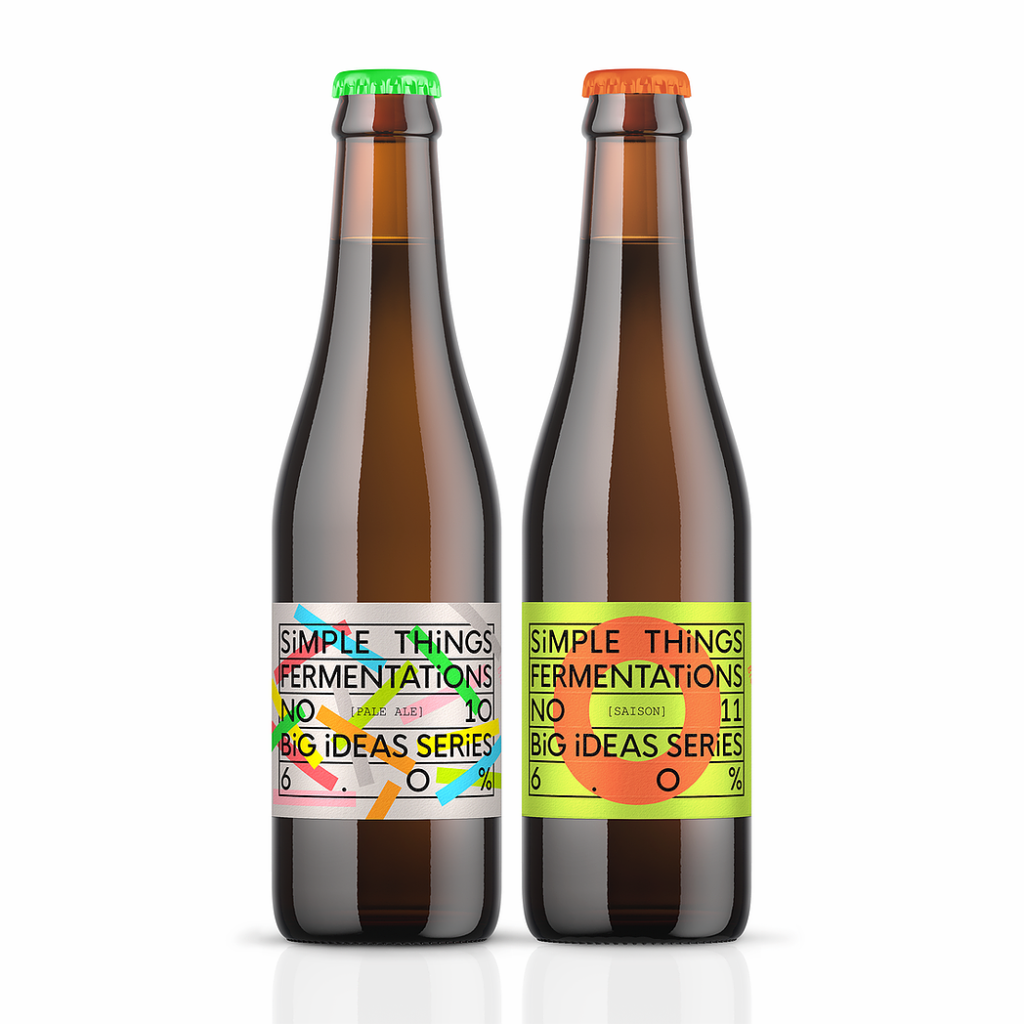
The intention, before 2020 struck, was to have such releases complement draught beers primarily for the local market.
“Brewing golden ales, stouts and porters was the plan. Having that as the second strand to the bottle-conditioned releases. But instead, the latter has been ok and the former hasn’t really happened at all,” says Sisson. “Ultimately, I’ve only been able to fulfil half of my business plan.”
He adds: “But the part that has worked, is welcomed. I’ve had a great response, which is really appreciated. It has kept me going and will hopefully continue, enabling me to finally start producing draught beers in 2021.”
Regardless of package, instilling a sense of place in his beers was always an important aspect of what Simple Things Fermentations is about.
And through releases such as the Scottish Light, Scottish Export and Peated Pale, he’s doing just that.
“I’ve adopted something of a broad outlook to my beers,” he believes. “If you were to write it down, I’d probably say Scottish, British and European. But it’s more of a wide circle with Scotland in the middle.”
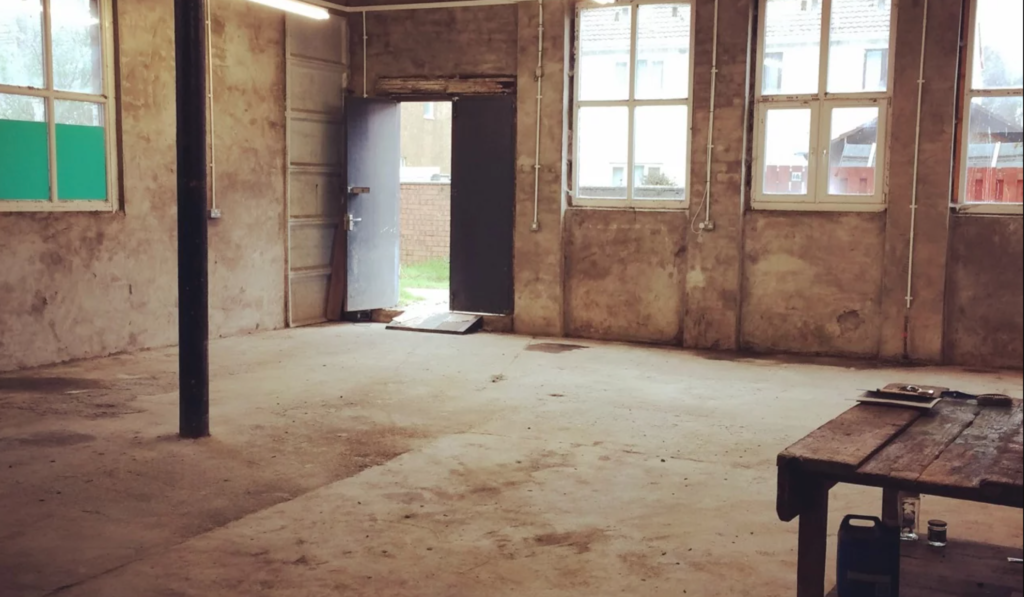
Sisson’s beers are brewed on his Dave Porter kit from PBC Installations.
“It’s kind of ideal for me. It’s nothing fancy but it’s perfectly capable of making good beer. It suits the type of beers I’m brewing,” he says.
“I could potentially have looked for outside investment early on, and started out with a newer kit and a bigger team. But the way things have gone, has meant that I’m glad I’ve kept things modest and will look to grow organically from there.”
And growing organically in 2021 is very much the plan.
“Going forward is to hopefully do all of the things I was planning to do this year. I want to be able to attend beer festivals, take part in collaborations, produce draught beer and get the name out there,” he says. “If I can raise the awareness of what I’m doing, and get more beer out there then I’ll be very happy.”

